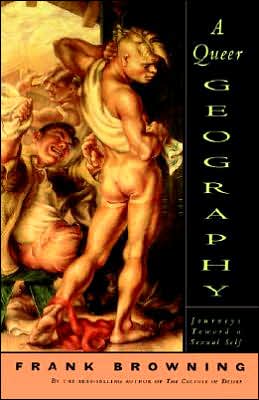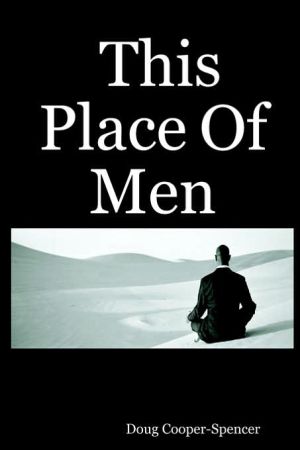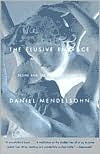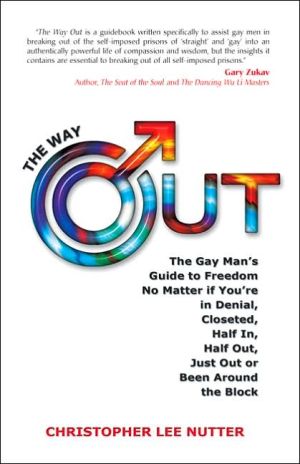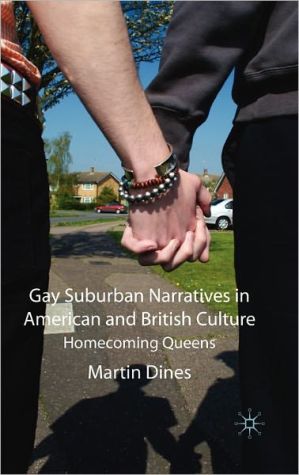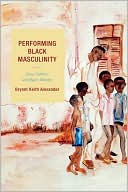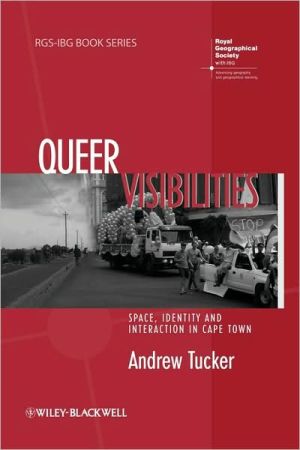A Queer Geography: Journeys Toward a Sexual Self
This is the provocative question posed by Frank Browning in a A Queer Geography. In this contemporary classic of gay literature, now with a revised first chapter, Browning shows us that gay culture is more a fabrication of American identity politics than of actual sexual desire. He explores the gay psyche as he travels from the streets of Brooklyn to the hill of Kentucky, from France to the Bay of Naples. As he does so, he argues that roots of gay identity by showing how the Puritan compact...
Search in google:
The author of The Culture of Desire returns with a volume of essays devoted to questioning the definition of "gay identity" and what role it has in modern society. Now out in paperback. Roberto Friedman Browning investigates the idea of a gay identity as just one point on a global spectrum of homosexual lives and behaviors. -- Washington Post Book World
\ Roberto FriedmanBrowning investigates the idea of a gay identity as just one point on a global spectrum of homosexual lives and behaviors. -- Washington Post Book World\ \ \ \ \ Publishers Weekly - Publisher's Weekly\ In an often provocative personal exploration of homosexual identity, National Public Radio reporter Browning (The Culture of Desire) argues that gay activism in the U.S. has taken on a communitarian, almost religious character, shaped by a Protestant belief in spiritual rebirth that is central to American culture. In transforming subterranean desire into a political movement, gay and lesbian activists have made coming out a ritual akin to being "born-again," he contends. By contrast, the gay-straight divide is much more fluid and bridgeable in Naples, Italy, where Browning's encounters with a gay doctor and transvestites lead him to situate homosexual identity in a web of family relations and social codes. To buttress his thesis that experiencing being gay is shaped by one's culture, Browning looks at the ritualized gay sex of Sambia tribesmen of New Guinea and at homosexuality among middle-class Brazilians and Filipinos. The search for a responsible, liberated sexuality, he insists, can serve as a model for political activists working to achieve an inclusive, pluralistic, democratic society. Author tour. (Apr.)\ \ \ Robert E. BaumanDon't misunderstand the meaning of geography here. There are no maps. What the author seeks is a delineation of the constituent elements of being gay, as the subtitle says: Journey Towards a Sexual Self.\ In his first book, Browning writes here, he asked "a single question: Had gay men succeeded in the radical, utopian dream of constructing their own social world based on the exigencies of desires?" Now, he argues, we"re moving beyond the desire to define ourselves at all. His new question, says Browning, is "Do gay people [as we once defined gay] exist?" That a "gay community" has evolved, no one denies. Exactly what that community's components may be is wide open to question.\ — The Advocate\ \ \ \ \ \ Kirkus ReviewsA murky collection of essays about varying strategies for gay male self-definition.\ National Public Radio reporter Browning (The Culture of Desire, 1993, etc.) theorizes that in America the "search for place is at the heart of the gay faith of coming out and being reborn into our own queer culture." While his discussion of how this process mirrors the Puritans' original impulse in settling America is occasionally provocative, he confuses the point by noting that many gay men flout the idea of, and the need for, a queer culture. In anecdotes drawn from his own life and many contacts, professional and romantic, Browning finds that the perspectives of men who desire men are so divergent that, especially across generations, they often don't share anything like the same "interior geography." Browning discusses an obscure New Guinea tribe whose boys perform fellatio on their elders for a time, then become heterosexual; he holds up this provisional brand of sexuality, which is ritually bound up with communal identity, as a contrast to Americans' insistence on sexuality as a matter of individual identity. A chapter on transvestite prostitutes in Naples reinforces the unoriginal point that other cultures take for granted ambiguities most Americans have trouble confronting. Browning questions whether the process of coming out doesn't so much liberate the individual as commit him to an unnecessarily formulaic category, and explains that Michel Foucault didn't publicly avow his homosexuality for this reason; the argument is clever but barren. And like many of Foucault's less brilliant disciples, Browning constantly lards his prose with specious analytical language; for instance, explaining his "open relationship" and how gay men acquire extended networks of friends through sex, he says such a social system "values a dynamic ethics of human interaction over an inherited rule of domestic exclusivity."\ Yes, plus, you get all that sex.\ \ \
